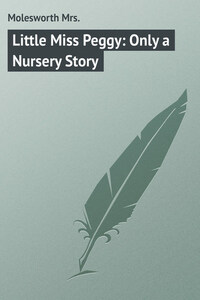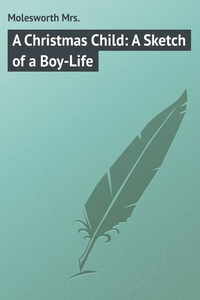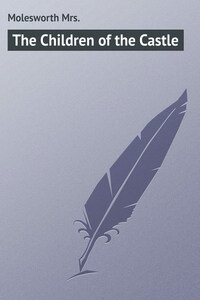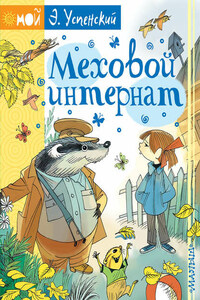CHAPTER I
'IT'S DREADFUL, ISN'T IT?'
Mamma sat quite quietly in her favourite corner, on the sofa in the drawing-room, all the time papa was speaking. I think, or I thought afterwards, that she was crying a little, though that isn't her way at all. Dods didn't think so, for I asked him, when we were by ourselves. She did not speak any way, except just to whisper to me when I ran up to kiss her before we went out, 'We will have a good talk about it all afterwards, darling. Run out now with Geordie.'
I was very glad to get out of the room, I was so dreadfully afraid of beginning to cry myself. I didn't know which I was the sorriest for – papa or mamma – mamma, I think, though I don't know, either! Papa tried to be so cheerful about it; it was almost worse than if he had spoken very sadly. It reminded me of Dods when he was a very little boy and broke his arm, and when they let me peep into the room just after the doctor had set it, he smiled and whistled to make out it didn't hurt much, though he was as white as white. Poor old Doddie! And poor papa!
'It'll be worse for us and for mamma than for papa, won't it, Dods?' I said, as soon as we were outside and quite out of hearing. 'They always say that it's the worst for those that are left behind – the going-away ones have the change and bustle, you see.'
'How can I tell?' said Dods; 'you ask such stupid things, Ida. It's about as bad as it can be for everybody, and I don't see that it makes it any better to go on counting which it's the worst for.'
He gave himself a sort of wriggle, and began switching the hedge with the little cane he was carrying; by that and the gruff tone of his voice, I could tell he was feeling very bad, so I didn't mind his being rather cross, and we walked on for a minute or two without speaking.
Then suddenly Dods – I call him Dods, but his real name is George, and mamma calls him Geordie – stopped short.
'Where are you going, Ida?' he said. 'I hear those children hallooing over there in the little planting. They'll be down upon us in another moment, tiresome things, if we don't get out of the way, and I certainly don't want them just now.'
I didn't either, though I'm very fond of them. But they're so much younger, only seven and eight then, and Dods and I were thirteen and fourteen. And we have always gone in pairs. Dods and I, and Denzil and Esmé. Besides, of course, the poor little things were not to be told just yet of the strange troubles and sorrows that had come, or were coming, to us.
So I agreed with Dods that we had better get out of the way.
'Esmé is so quick,' I said; 'she'd very likely see there was something the matter, and papa did so warn us not to let them know.'
'Humph,' said Dods. 'I don't think we need worry about them. Denzil is as dense as a hedgehog, and as comfortable as a fat dormouse. He'd never worry as long as he has plenty to eat and a jolly warm bed to sleep in. And Esmé's just a – '
'A what?' I said, rather vexed, for Esmé is a sweet. She's not fat or lazy, and I don't think Denzil is – not extra, for such a little boy.
'She's just a sort of a butterfly,' said Geordie. 'She'd never mind anything for long. She'd just settle down for half a moment and then fly up again as merry as a sandboy.'
I could not help bursting out laughing. It was partly, I daresay, that I felt as if I must either laugh or cry. But Dods did mix up his – 'similes,' I think, is the right word – so funnily! Hedgehogs and dormice and butterflies and sandboys, all in a breath.
'I don't see what there is to laugh at,' said Geordie, very grumpily again, though he had been getting a little brighter.
'No more do I, I'm sure,' I replied, sadly enough, and then, I think, Dods felt sorry.
'Where shall we go?' he said gently.
'Wherever you like – to the hut, I think. It is always nice there, and we can lock ourselves in if we hear the children coming,' I answered.
The hut, as we called it, was our very most favourite place. It was much more than you would fancy from the name, as you will hear before long. But we did not wait to go on talking, till we got there. The children's voices did not come any nearer, but died away in the distance, so we walked on quietly, without hurrying.
'Ida,' said Geordie after a bit, 'it's dreadful, isn't it?'
'Yes,' I agreed; 'I think it is.'
The 'it' was the news poor papa had been telling us. We were not quite like most other children, I think, in some ways. I think we – that is, Dods and I – were rather more thoughtful, though that sounds like praising ourselves, which I am sure I don't mean. But papa and mamma had always had us a good deal with them and treated us almost like companions, and up to now, though he was getting on for thirteen, Dods had never been away at school, only going to Kirke, the little town near us, for some lessons with the vicar, and doing some with me and our governess, who came over from Kirke every day. So papa had told us what had to be told, almost as if we were grown-up people.
We did not understand it quite exactly, for it had to do with business things, which generally mean 'money' things, it seems to me, and which, even now, though I am sixteen past, I don't perfectly understand. And I daresay I shall not explain it all as well as a quite grown-up person would. But I don't think that will matter. This story is just a real account of something rather out of the common, and I am writing it partly as a kind of practice, for I do hope I shall be able to write stories in books some day, and partly because I think it is interesting even if it never gets into a book, and I should like Denzil and Esmé to read it all over, for fear of their forgetting about it.














